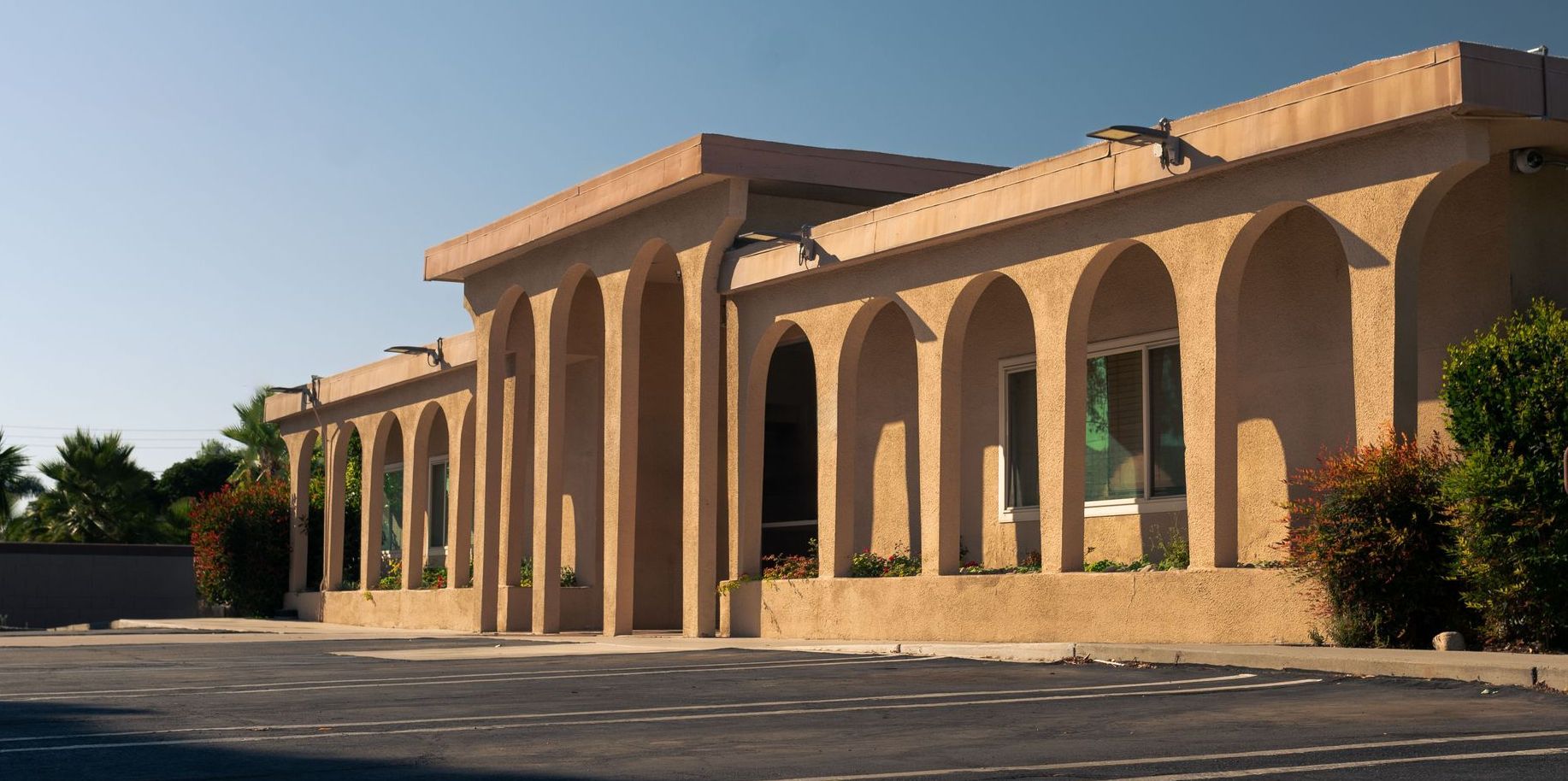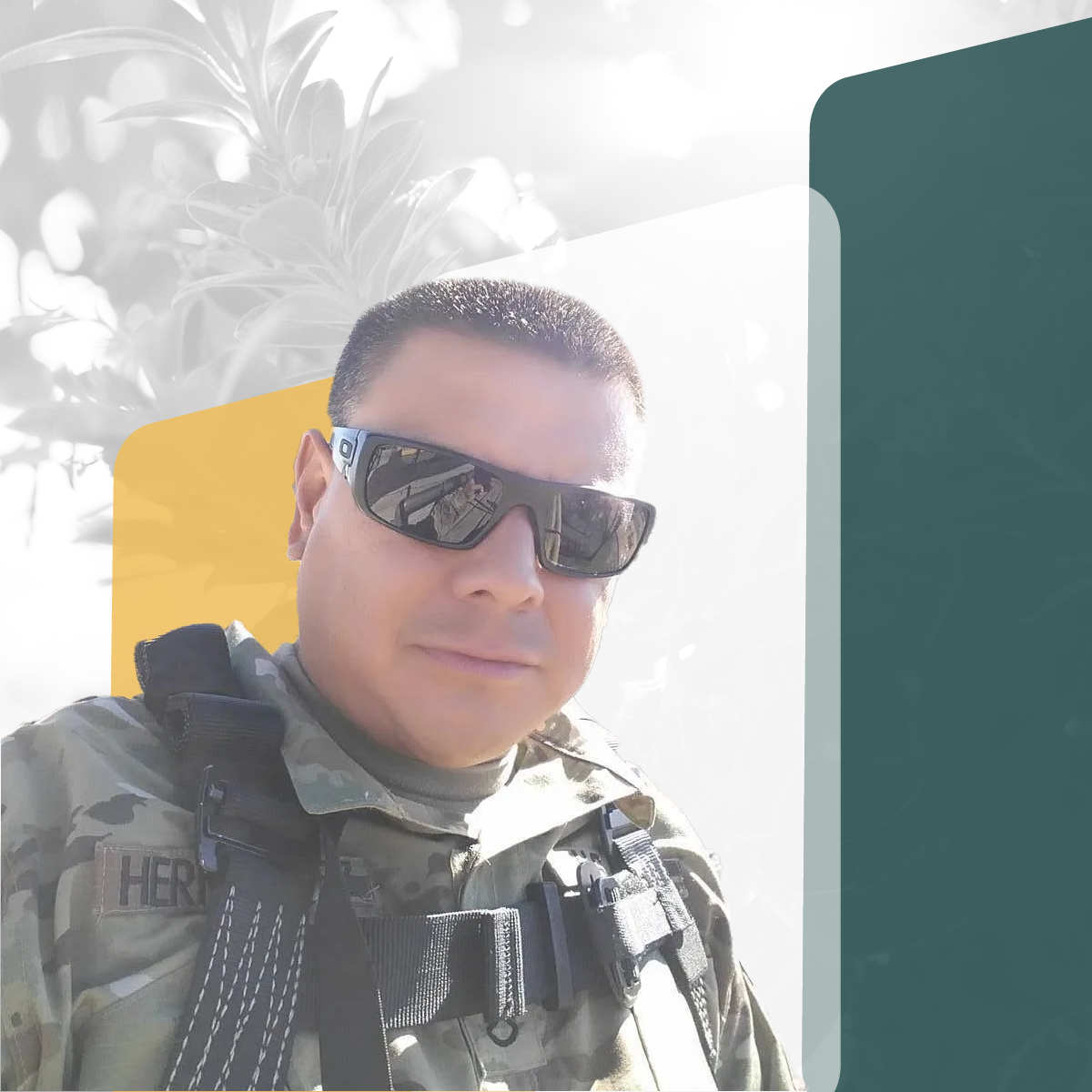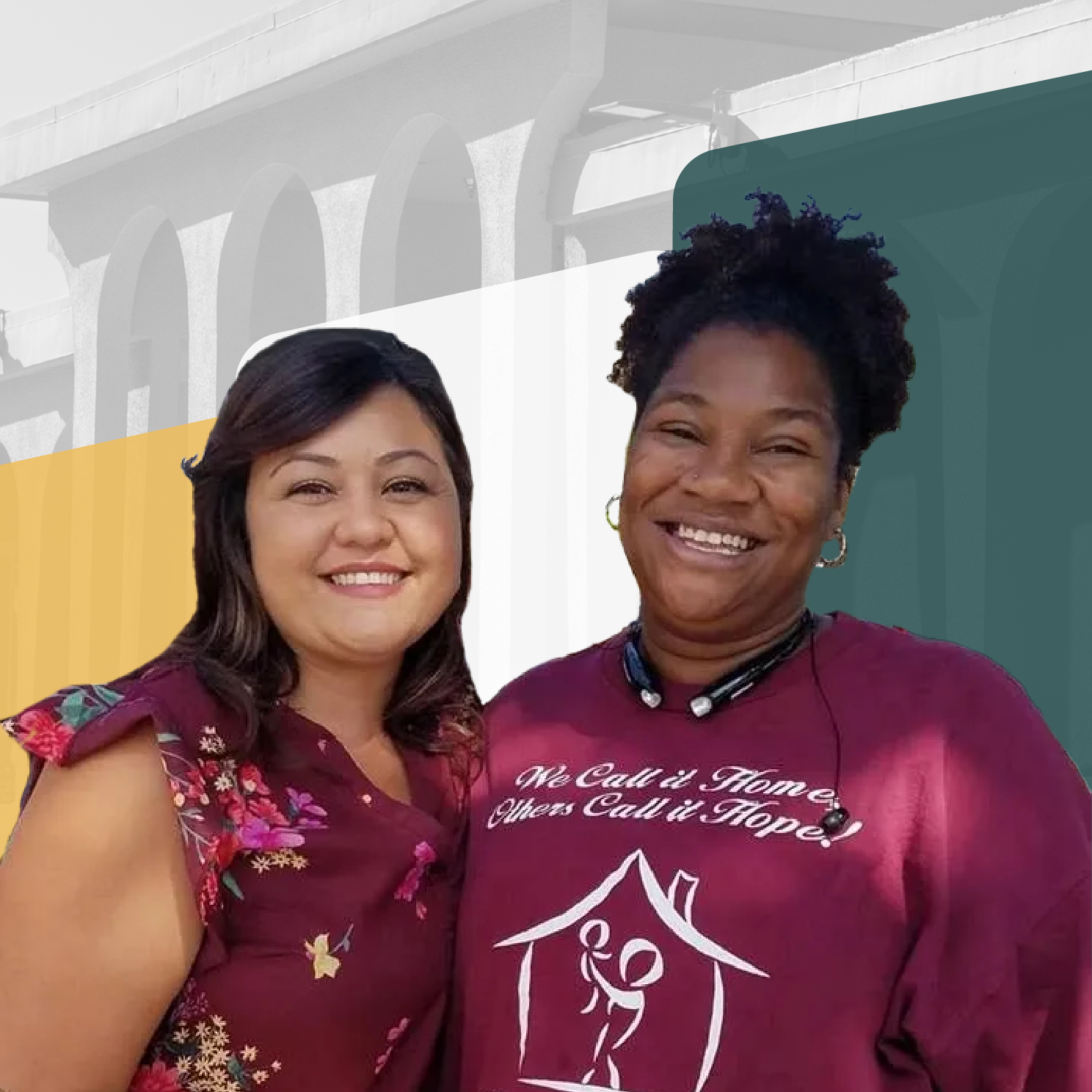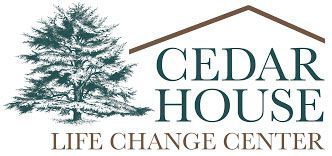The Power of Stories

When Tony walked into Cedar House years after completing treatment, he realized that his new perspective on life could save lives. He remembered the power of the testimonials he heard as a client and knew he should share his. What he didn’t realize was just how powerful telling his own story could be. After recounting all he had been through over the years, Tony said, “Thank you for the opportunity to tell you my whole story. I’ve never actually just gone through from top to bottom and told my full story. Wow! It’s just awesome to think how much this recovery thing really works. It’s pretty amazing!”
Think about that. Tony credits the stories he heard at Cedar House with planting the seed for his recovery. For the first time, he felt that he wasn’t alone in his battle with addiction. And now, the telling of his own is providing staying power for his recovery.
Tony’s relationship with meth was unrivaled in his late 20s. He said the first time he tried it, “It was like love at first sight. I knew we were going to have a relationship.” He felt that the chemicals in meth were his companion, giving him courage and defining who he was. After using only on weekends for a few months, he found his own dealer and became a daily user. When he found out it could be smoked, that was it. He said, “I went from being a social person to a recluse. I quit culinary school and spent a year using.”
Fortunately for Tony, he had friends who recognized he needed help. They came to his home and told his mother the situation. She was devastated, but together they helped him get into an outpatient program. For four years, he tried unsuccessfully to quit on his own or attempt different outpatient programs but continued using during that time.
In 2007, Tony was living in his car and deep in his addiction. He was frequently sick and barely remembers how he came to enter into treatment at Cedar House. He knows that he tried calling regularly to get in and was relieved when someone called to tell him there was a bed available for him. He spent the next 90 days at Cedar House learning about his disease and how to overcome it. He said, “They were brutally honest with me and asked the right questions.” That’s when he uncovered some of the childhood trauma that contributed to his struggles. He also learned to accept his higher power and to let people in to help him. Listening to fellow clients and staff share their testimonies empowered him to change his life.
Reflecting on other lessons he discovered during his time at Cedar House, Tony said, “I didn’t know that all I needed was to get some good life skills and give it an honest try.” Near the end of his residential treatment, Tony went with a group of clients from Cedar House to a job fair at Fairmount Park. It was there that he decided to join the Army. He served in the U.S. military for 10 years and moved up the ranks to Drill Sergeant.
Tony said, “Recovery is not just staying clean. It’s moving forward in life.” He is indeed moving forward with his, as he continues his education in pursuit of a human services degree next spring and eventually a psychology degree beyond that, in order to be able to serve people in a clinical environment. In that way, he said that he is “starting to use (his) skills and trust the process.”
Cedar House set me in the right direction. I wouldn’t have felt capable if it wasn’t for Cedar House. They primed me and prepped me to see my value and that my life is worth living.
Between his time in the service and his experience in rehab, Tony learned the importance of feeling empowered. He hopes to impart these lessons on other individuals in need: “Don’t tell me what you can and cannot do. I’m going to tell you. Empower you. You have no idea what you’re capable of. If it worked for me, why can’t it work for you.” He believes in practicing life skills, going to meetings, having a sponsor, meditation, prayer, not giving in to cravings, and believing in his skills. Those firm principles and the strength of his story will take him far in life and in his efforts to serve others in need.


There is nothing quite as powerful as a mother’s love. From the moment her son was born, Sereeta knew she would do everything she could to protect him. She had already experienced the heartbreak of losing her children once, and she was determined never to feel that pain again. Sereeta’s struggle with addiction began at the age of 19. She entered treatment and remained sober for six years, building a life she was proud of. But everything changed when she became a victim of domestic violence. The abuse eventually led to her losing custody of her five children -- a loss that shattered her world and led to relapse. “I could not get away from him. He would try to control me.” Desperate to escape the violence, Sereeta left and began living on the streets. She slept near a shopping center, searching for safety and resources wherever she could find them. One day, at a charity donations center, a woman noticed her and offered help. That connection led Sereeta to Cedar House, where she sought treatment for methamphetamine and marijuana addiction, and where her life began to change. “I knew I wanted a change but didn’t know how.” Years of trauma and loss had taken a toll. Sereeta struggled with anger and didn’t yet know how to process the pain she carried. What surprised her most was the compassion she encountered at Cedar House. Staff members didn’t give up on her. They believed in her, even when she struggled to believe in herself. “I saw that different people had hope in me.” Just one week after arriving at Cedar House, Sereeta was hospitalized. Over the next three weeks, she remained in close contact with staff, calling regularly for reassurance. “I didn’t want to lose my son. I didn’t want to feel that pain again.” After an eight-hour surgery and a blood transfusion, Sereeta gave birth to a healthy baby boy. But the next day, a police officer and social worker arrived at her hospital room with the devastating news that she would not be taking her baby home. Four days later, Sereeta returned to Cedar House with 34 surgical staples, deep emotional wounds, and a renewed determination. “That’s when I believe my journey started. I was fighting for that little boy. I never fought so hard for anything in my life.” The first month was difficult. Sereeta continued to wrestle with anger, grief, and the trauma of her past. “The first month was hard. It was a battle for me.” Over six months at Cedar House, Sereeta did the work. She achieved sobriety, learned healthy ways to manage her anger, and began rebuilding her faith. “I didn’t realize God had something else in store for me. I just had to trust in the process.” After completing treatment, Sereeta transitioned into other supportive housing. Slowly, she began having overnight visits with her son. On August 22, those visits became extended stays. On September 5, she was granted full custody of her baby boy. Today, Sereeta is a full-time Civic Engagement Specialist for a charitable foundation. She lives in her own apartment with her son and spends every other weekend with all of her children. “I have established leadership skills, budgeting skills, and learned how to be a productive member of society as a mother.” Looking back, Sereeta speaks of the “true, honest support” she found at Cedar House. The love and care she received from staff, and even something as simple as an Acceptance Prayer, carried her through moments when she felt overwhelmed. “If it wasn’t for Cedar House, I would still be traumatized by the domestic violence. The staff members showed me love like I’ve never been shown before.” Sereeta’s story is one of resilience, healing, and the power of believing in someone until they can believe in themselves. It is a testament to what is possible when compassion meets commitment, and when a mother is given the support she needs to fight for her future and her family.

When someone is seeking help for drug or alcohol addiction, one of the most important questions to ask is: Is this treatment evidence-based? The answer can make a meaningful difference in recovery outcomes, safety, and long-term stability. At Cedar House Life Change Center, evidence-based treatment is the foundation of everything we do. Our programs are designed using approaches that are backed by research, clinical best practices, and decades of real-world experience serving individuals and families in the Inland Empire. What Does “Evidence-Based Treatment” Mean? Evidence-based treatment refers to therapies and clinical practices that have been scientifically studied and proven effective in treating substance use disorders and co-occurring mental health conditions. These approaches are recommended by national health authorities and continuously evaluated to ensure they improve outcomes. Unlike untested or purely anecdotal methods, evidence-based care relies on: Clinical research Outcome data Professional standards of care Ongoing evaluation and improvement In addiction treatment, this matters because recovery is complex, personal, and deeply impacted by mental health, trauma, and social factors. Why Evidence-Based Treatment Matters in Recovery Addiction affects both the brain and behavior. Effective treatment must address more than substance use alone. Evidence-based treatment: Improves engagement and retention in care Reduces relapse risk Supports mental health and emotional regulation Helps individuals build practical coping skills Increases long-term recovery success For families and referral partners, evidence-based care also provides confidence that treatment decisions are grounded in proven methods—not trends or shortcuts. Evidence-Based Treatment at Cedar House Cedar House has served adults seeking recovery for decades, and our treatment model continues to evolve based on best practices and community need. Structured, Research-Supported Curricula Cedar House utilizes well-established, evidence-based curricula, including: The Matrix Model, a structured approach shown to be effective in treating substance use disorders Living in Balance, a nationally recognized curriculum that addresses substance use, mental health, relapse prevention, and life skills These frameworks provide consistency while allowing flexibility for individual needs. Integrated, Whole-Person Care Evidence-based treatment recognizes that recovery is not one-size-fits-all. At Cedar House, clients participate in therapeutic groups and services that address: Substance use patterns Co-occurring mental health conditions Trauma and stress Family relationships Emotional regulation and coping skills This integrated approach supports both short-term stabilization and long-term recovery. Medication-Assisted Treatment (MAT) When clinically appropriate, Cedar House incorporates Medication-Assisted Treatment (MAT) as part of an evidence-based recovery plan. MAT is widely recognized as an effective tool for reducing cravings, supporting stabilization, and improving treatment retention, especially when combined with counseling and behavioral therapies. Individualized Services While evidence-based models provide the framework, treatment at Cedar House is always individualized. Clinical teams work with each client to develop a plan that reflects their history, goals, strengths, and challenges. T his balance between structure and personalization is a hallmark of effective evidence-based care. Why Evidence-Based Care Matters for Families and Referral Partners Choosing a treatment program is a significant decision. Evidence-based treatment offers reassurance that: Care is aligned with clinical standards Services are ethically and professionally delivered Treatment approaches are supported by research and outcomes Recovery planning is intentional and goal-oriented For referral partners, evidence-based programs help ensure continuity of care and better outcomes for the individuals they serve. A Commitment to Quality and Accountability At Cedar House, evidence-based treatment is not a buzzword. It’s a commitment. Programs are continually reviewed, staff are trained in best practices, and services are delivered with compassion, accountability, and respect for each individual’s recovery journey. Getting Help That’s Grounded in What Works If you or a loved one is exploring treatment options, understanding whether a program uses evidence-based approaches is an important first step. At Cedar House, treatment is grounded in what works because recovery deserves care that is informed, intentional, and proven. To learn more about Cedar House programs or to access services using private health insurance, explore the website or call 909-421-7120 today.


Share On: